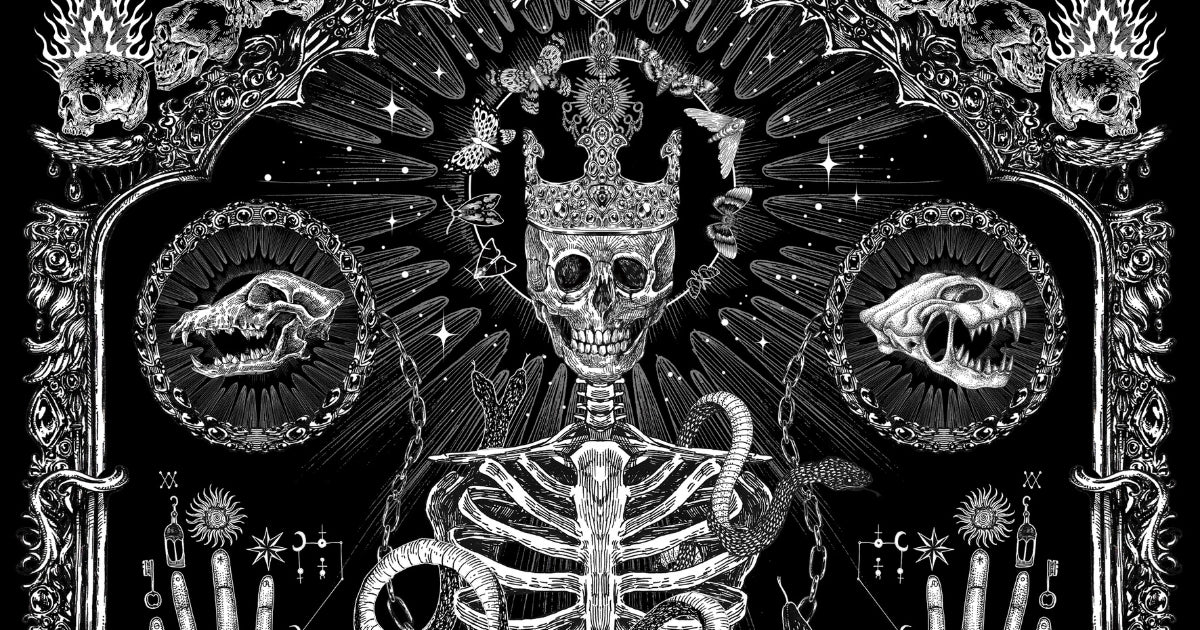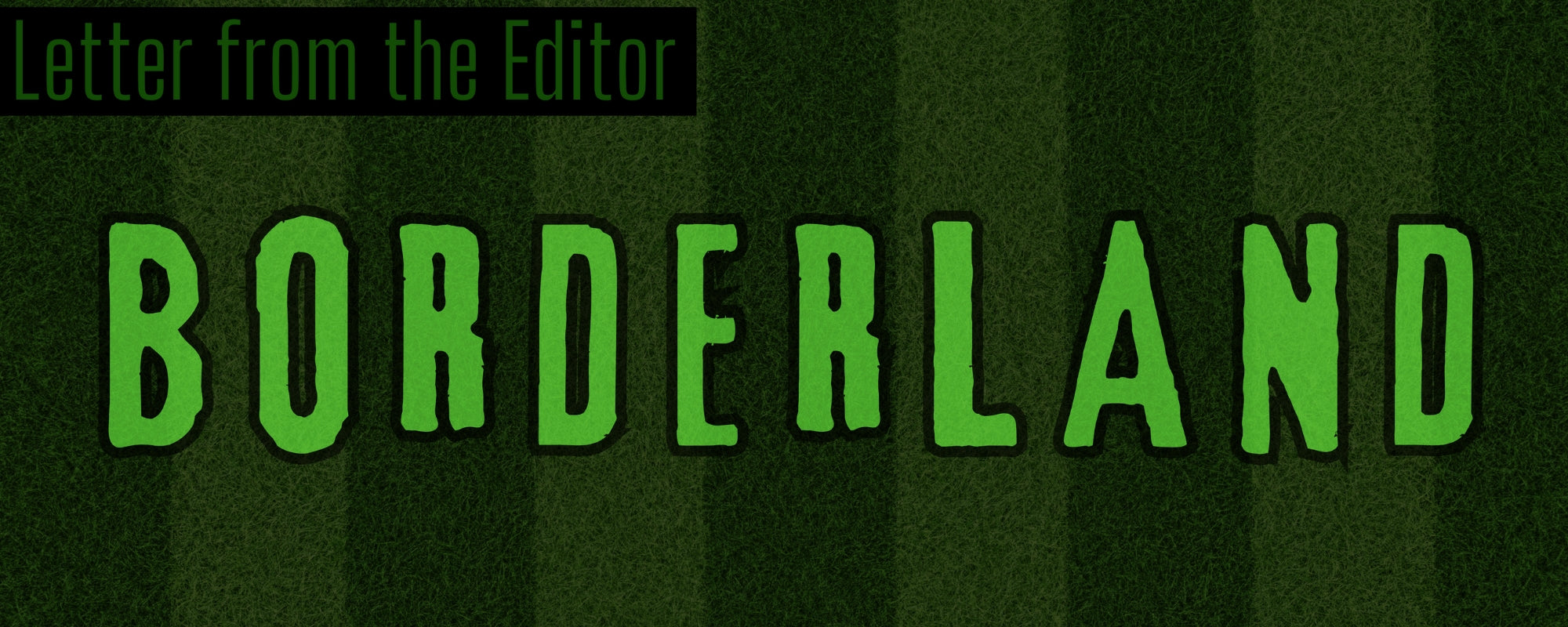
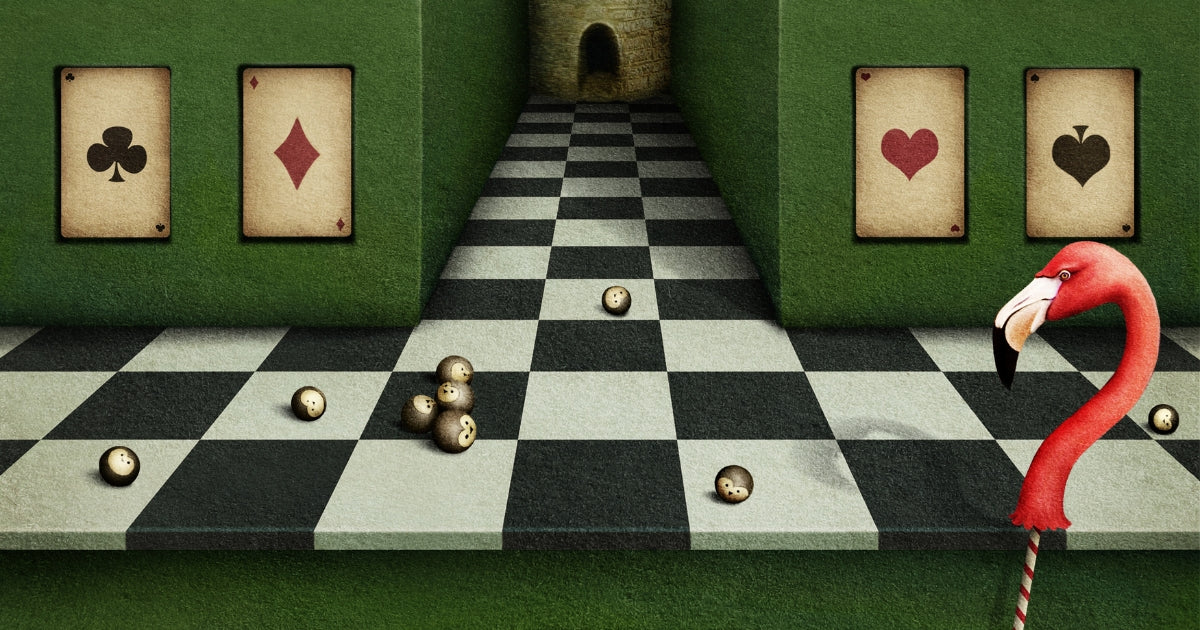
Letter from the Editor: Borderland
By Rob Carroll
Fiction is often described as a doorway into other worlds. Stories are where we fall down the rabbit hole, step through the wardrobe, cross the River Styx, and enter the Upside Down. Doorways, portals, and thresholds are common symbols. Demarcations are as important as the territories they define. Windows provide glimpses, hallways provide passage. What once was abstract can now be experienced via the architecture of material space. Metaphor becomes tangible. A turn around the corner is made possible by a turn of phrase. What begins as a hallucination is slowly rendered real.
But if the book is a portal into another world (the story), and the story has its own portals into other worlds (e.g. the rabbit hole), then what’s to say that our reality is the source of all iterations? What’s to say that we aren’t already an iteration of something else?
Proponents of Simulation Theory—the pop-science theory that reality is merely an ultra-high-tech computer simulation—posit that the theory will essentially be confirmed should humanity ever become technologically capable of creating a simulation of reality that is indistinguishable from the source. The reasoning is this: if we can digitally replicate reality, then the odds are high that we’re already working within an existing replication, something that has already been simplified into bytes and is now being rendered by a hardware artifact that is both a max limit and an absolute, irrespective of observer—also known as the speed of light.
If this is true, then physical space exists as an abstraction the same way it exists in books, only in this instance, it’s written by computer code rather than language. Our causal impact of reality would remain (limited by the upward bound of the system’s processing speed (again, the speed of light)), but movement would be entirely symbolic—similar to how a video game replicates movement by rendering environmental changes in accordance with your controller input while you lounge stationary on the couch. Consciousness can now be rationalized as an integrated system that grants the user a subjective experience of the world. As it stands today, consciousness is a bit of an evolutionary conundrum since it requires a lot of energy but doesn’t provide any advantage or efficiency, only an experience. (For context, an algorithmic response to stimuli devoid of thoughts and feelings would be mechanically superior.) But what if the experience is the entire point?
Humans are qualia-generating machines. We absorb information, process it, and spit out sense-perceptions that branch off into feelings and thoughts, some of which work to explain the same qualia from which they were borne. But what if we’re not generating the qualia for ourselves? What if our sense perceptions are generated for the study or entertainment of a higher consciousness, or our own consciousness on a higher plane? What if what we define as reality is just the space between the source of the qualia and the experience we create for the higher observer? What if our reality is simply a borderland?
It’s not that hard to imagine if you remember how much we define our reality by the spaces in between. Most of the universe is empty, most of an atom is empty, energy exists primarily in a state of potential, music is defined by the relationship between notes in time, and the space you allow in a written story is often more powerful than the space you occupy. Again, it’s why so much of life and art is represented by doors, windows, and passageways. Delineations. Demarcations. Liminal spaces. Suspense is not ‘what happens’, but the anticipation of something happening. As horror writers know well, the creaking of a door can often be more visceral than what’s revealed to be behind it.
We also know that reality is dependent on an observer. It’s why observation has a measurable impact at the particle level. It’s why some physicists have become troubled by the similarities between the equations that govern the universe and the equations that govern the internet. A website only becomes the thing it was designed to be after a browser requests the page and converts the HTML/CSS/etc. into a more universally recognized set of symbols (e.g. text and graphics). So, if the universe is at all similar in nature, that would mean it’s just a string of characters that’s only made perceivable after being pinged by an authorized user and converted by the required software (i.e. consciousness). But what if it needs to be pinged by a higher consciousness/self? What if we exist in the space between the press of a controller button and the action the player sees on screen?
In that case, let’s just hope our player is capable of a good score.
In this issue of Dark Matter, nine stories blur reality and explore borders, boundaries, and all the spaces in between. In “Choose Your Own Destruction” by Amanda Cecelia Lang, fiction is reality for those caught inside the story, no matter how insane the plot may seem. In “Good Neighbors” by Marlaina Cockcroft, a garden fence is all that stands between one nosy neighbor and the catastrophic consequences of her private machinations made real. In “A Ruthless Pedigree” by Bill Gusky, the only way to defeat a higher dimensional being is by crossing over into their realm and losing your humanity in the process. In “The New Family” by Elliott Gish, beneath the veneer of a quiet residential street lies the true reality: a haunted limbo of cruel indifference, harmful secrets, and moral decay. But the space between perception and reality is where the new neighbors will play. In “Glacial, Eternal” by Aleco Julius, humanity’s obsession with measuring, documenting, and recording opens a portal not to rational discovery but to the madness of perpetual unknowing. In “Stand Here, Close to the Light” by Murtaza Mohsin, distance is an illusion. The folly of man is hardwired; where we go, it goes, and this includes the stars. In “My Other Half” by Belicia Rhea, modern feelings of loneliness and isolation are worsened by a system that fundamentally misunderstands the problem. Authentic connections cannot be replicated, automated, or gamified. These processes make everything immediate and instantly accessible, but loving relationships need time and space to grow. In “Devouring the Starry Night,” author Angela Liu asks a powerful question: If a sense of belonging is beautiful, and a life defined by others is madness, then where on this spectrum does the relationship between creator and created lie? And finally, in this issue’s reprint “The Door is Open,” author Warren Benedetto reminds us that some portals are best kept closed.
Sincerely,
Rob Carroll
Editor-in-Chief
Copyright © 2023 Rob Carroll
The Editor
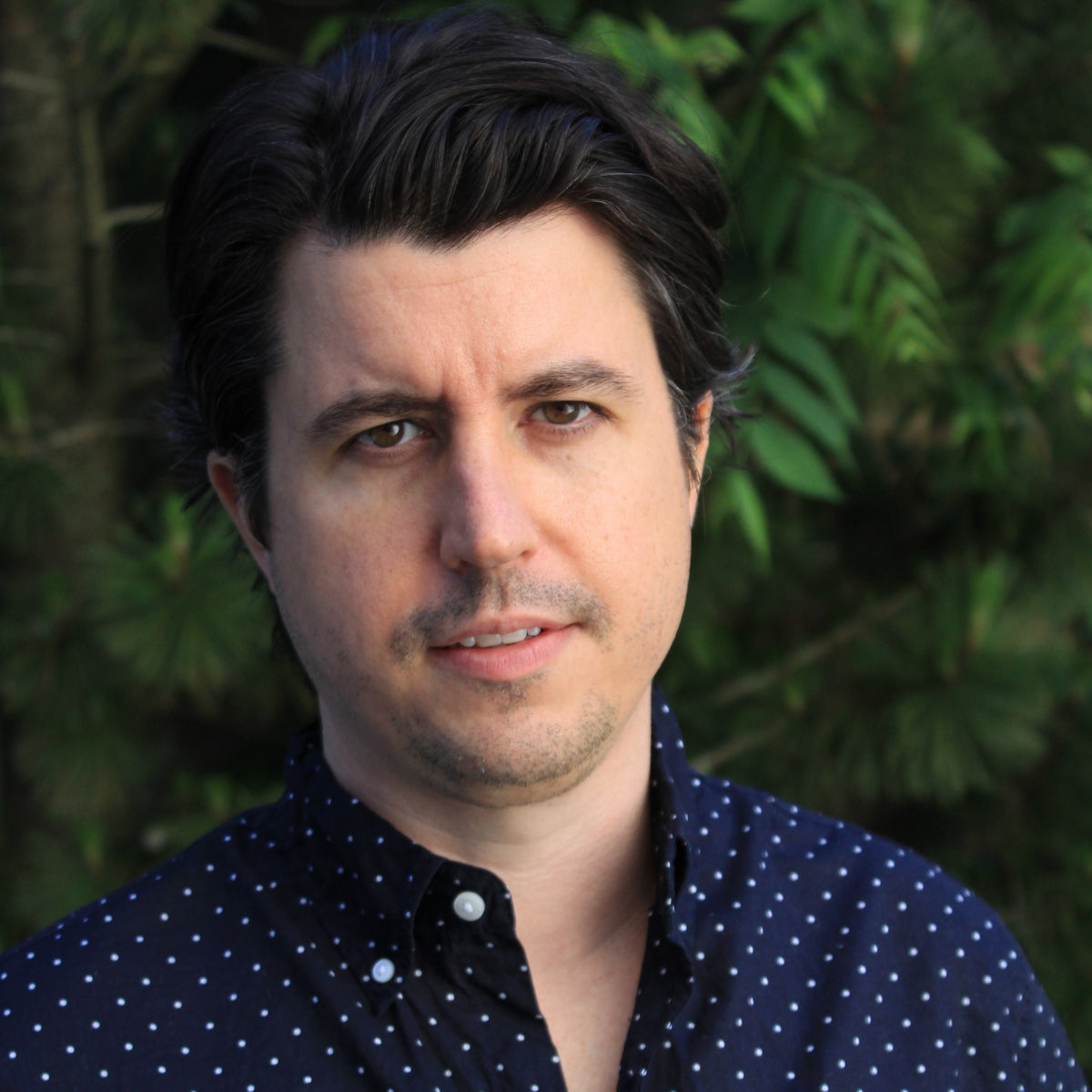
Rob Carroll
Continue reading
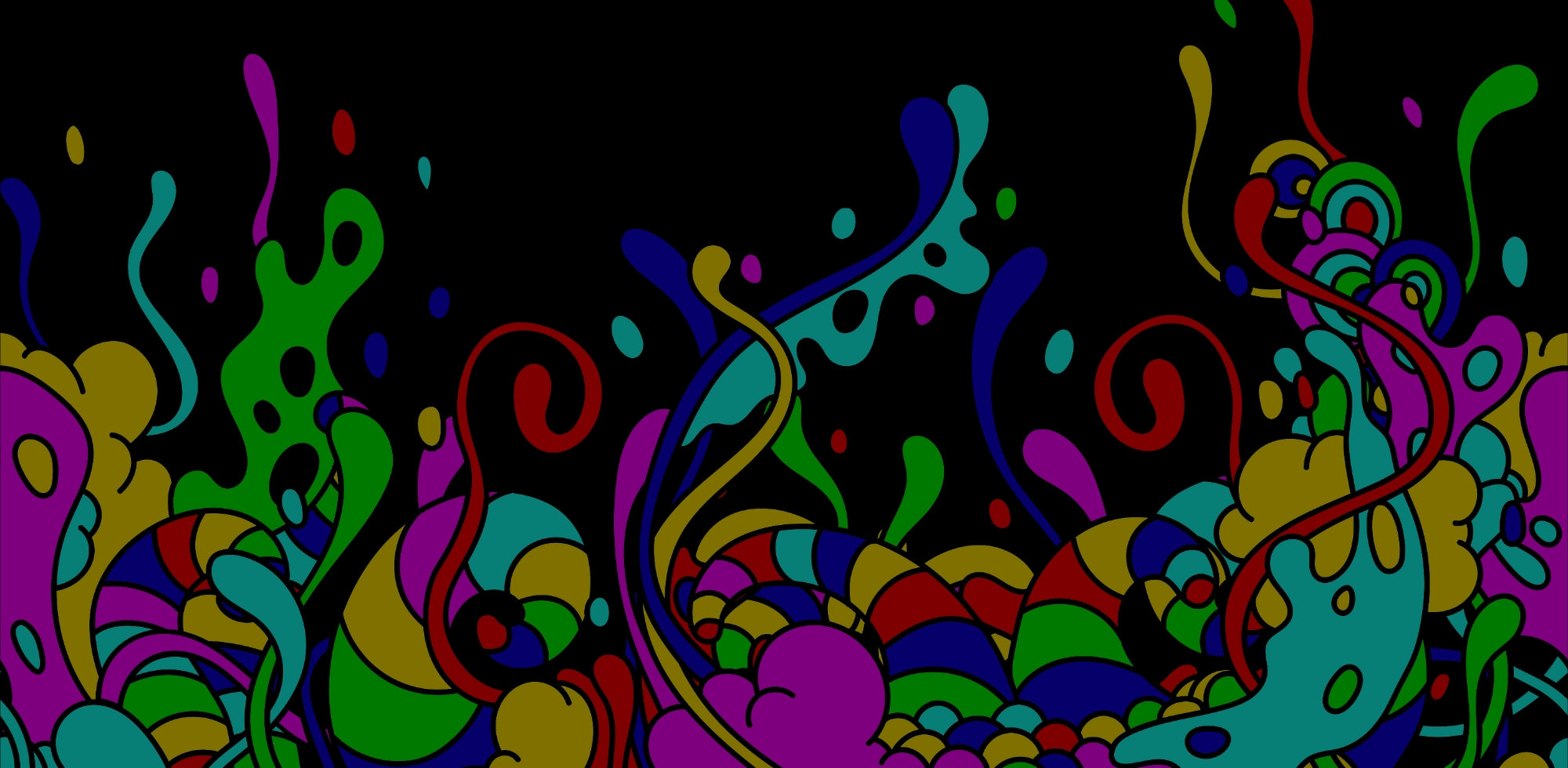
Get Issue Updates
Promotions, new products and sales. Directly to your inbox.


